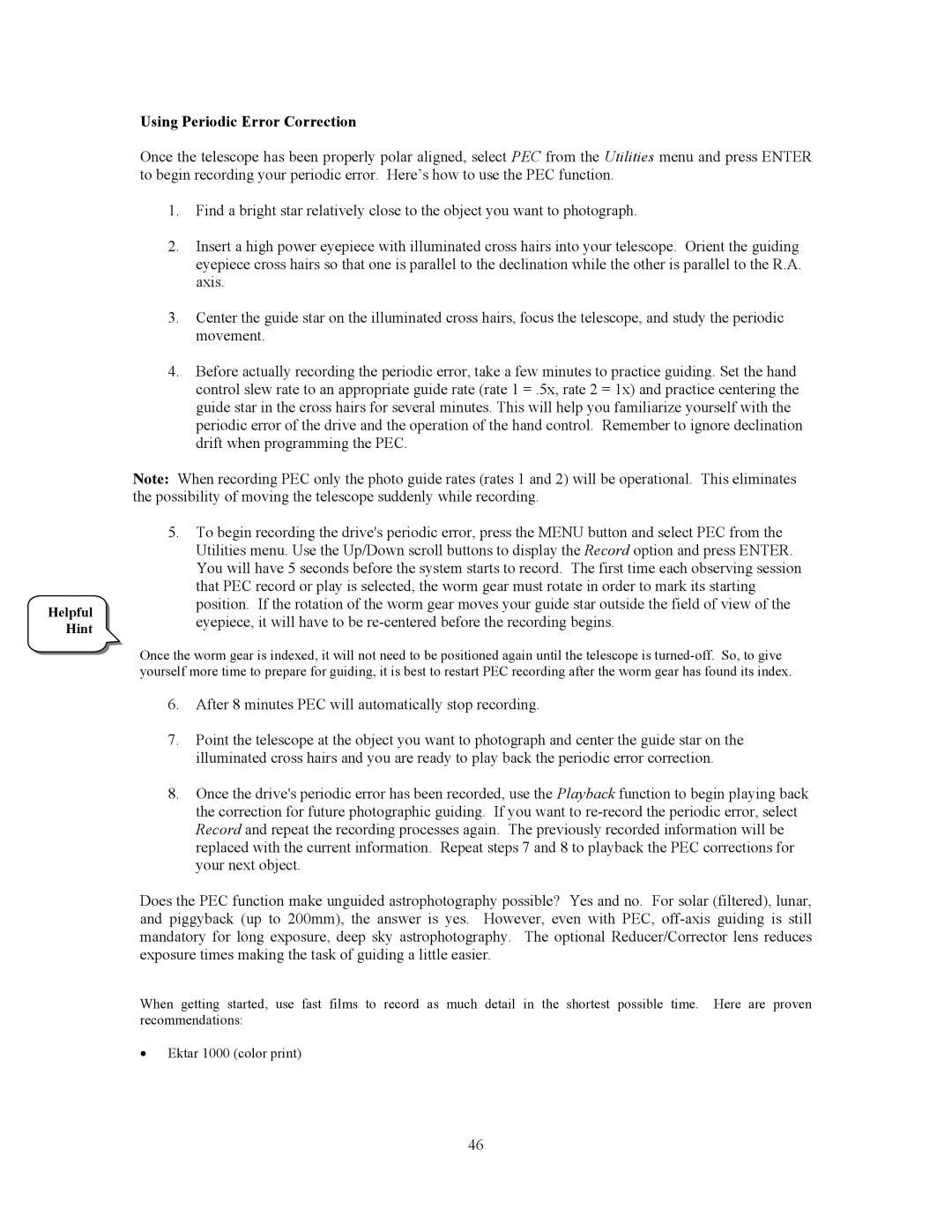
Helpful Hint
Using Periodic Error Correction
Once the telescope has been properly polar aligned, select PEC from the Utilities menu and press ENTER to begin recording your periodic error. Here’s how to use the PEC function.
1.Find a bright star relatively close to the object you want to photograph.
2.Insert a high power eyepiece with illuminated cross hairs into your telescope. Orient the guiding eyepiece cross hairs so that one is parallel to the declination while the other is parallel to the R.A. axis.
3.Center the guide star on the illuminated cross hairs, focus the telescope, and study the periodic movement.
4.Before actually recording the periodic error, take a few minutes to practice guiding. Set the hand control slew rate to an appropriate guide rate (rate 1 = .5x, rate 2 = 1x) and practice centering the guide star in the cross hairs for several minutes. This will help you familiarize yourself with the periodic error of the drive and the operation of the hand control. Remember to ignore declination drift when programming the PEC.
Note: When recording PEC only the photo guide rates (rates 1 and 2) will be operational. This eliminates the possibility of moving the telescope suddenly while recording.
5.To begin recording the drive's periodic error, press the MENU button and select PEC from the Utilities menu. Use the Up/Down scroll buttons to display the Record option and press ENTER. You will have 5 seconds before the system starts to record. The first time each observing session that PEC record or play is selected, the worm gear must rotate in order to mark its starting position. If the rotation of the worm gear moves your guide star outside the field of view of the eyepiece, it will have to be
Once the worm gear is indexed, it will not need to be positioned again until the telescope is
6.After 8 minutes PEC will automatically stop recording.
7.Point the telescope at the object you want to photograph and center the guide star on the illuminated cross hairs and you are ready to play back the periodic error correction.
8.Once the drive's periodic error has been recorded, use the Playback function to begin playing back the correction for future photographic guiding. If you want to
Does the PEC function make unguided astrophotography possible? Yes and no. For solar (filtered), lunar, and piggyback (up to 200mm), the answer is yes. However, even with PEC,
When getting started, use fast films to record as much detail in the shortest possible time. Here are proven recommendations:
•Ektar 1000 (color print)
46
